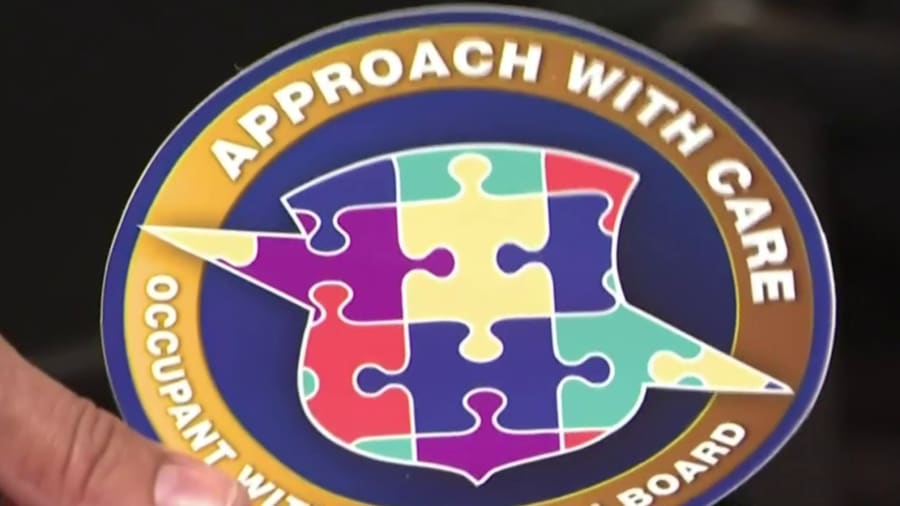A brand new program spearheaded by Michigan State Police Lt. Sara Krebs is meant to deescalate a confrontational encounter with someone who has autism.
Say for instance a trooper is called for a domestic violence situation where someone with autism is having an episode or a traffic stop where a passenger with autism is not cooperating.
“There are a lot of people struggling with mental, behavioral difficulties and if there’s one thing we can do to ease the situation, that would be really helpful,” said Krebs.
Instead of pulling their gun on someone with autism, troopers can use the bag of tools with a myriad of options to deescalate the situation, including a non-verbal cue card.
“You can try to communicate with the person and find out what the problem is and tell them what’s happening and where they’re gonna go next. This is a sticker meant to go on the back window of the car so the law enforcement officer knows before they get to the occupant what’s going on in that car,” said Krebs.
Here’s that sticker:

State police rolled this out as a pilot program in the spring which included new training with families explaining autistic behavior.
“That was great for them to be able to see how the kids talk and how they interacted with even just their parents,” said Krebs.
Just a few days later, the bag and training were put to use.
“I got dispatched to a family trouble complaint in the Holly area. A 17-year-old male with a 9-year-old mentality, and he was irate with his parents because he wasn’t getting something he wanted,” said Trooper Daniel McLaughlin.
McLaughlin said he thought about the training and the new techniques and the bag in his trunk.
“And I gave it to him and told him how important it was to me that he had it. And the way I look at it, I would want to be treated the same way he would want to be treated, so I look at it from a different perspective,” said McLaughlin.
He said the violent episode quickly cooled down.
“It’s a great program,” said John Young, the parent of twins both with autism.
Young said unpredictable situations are often triggers and interacting with an officer is often unpredictable for people with autism.
“So when they’re in a situation that’s unpredictable, first of all they’re likely to shut down and not say anything, which could be viewed as defiance, and then they might start the flapping of the arms because they’re trying to calm themself,” said Young.
That’s why Michigan State Police hopes other agencies will follow suit.
“Instead of going right to this person is a threat, they might actually go back on their training and think, ‘Well maybe this is just a person with autism,’” said Krebs.



